by Nora Aug 11,2025
"Crafting a poor Dune film would be all too simple…" –Ridley Scott, South Bend Tribune, 1979
This week celebrates 40 years since David Lynch's Dune, a $40 million flop in 1984 that has since amassed a devoted cult following, distinct from Denis Villeneuve's recent two-part adaptation of Frank Herbert's revered novel. In May 1981, after Ridley Scott, famed for Blade Runner and Gladiator, exited the project, the idiosyncratic Lynch was named director for producer Dino De Laurentiis.
Until recently, scant details emerged about Scott’s vision, developed over seven months for De Laurentiis. Now, thanks to T.D. Nguyen, a 133-page October 1980 draft by Rudy Wurlitzer (Two-Lane Blacktop, Walker), uncovered in the Coleman Luck archives at Wheaton College, has come to light.
Following the triumph of 1979’s Alien, Scott joined the project, where Herbert had penned a sprawling, overly faithful, and un-cinematic two-part screenplay, as noted by Wired and Inverse. Scott selected a few scenes but enlisted Wurlitzer for a complete rewrite in London as pre-production began at Pinewood Studios, clearly intending a two-part saga like Herbert’s and Villeneuve’s versions.
"Adapting Dune was among my toughest challenges," Wurlitzer told Prevue Magazine in 1984. "Creating a workable outline took longer than writing the script. We stayed true to the book’s essence but infused a distinct sensibility."
"We crafted a damn fine script," Scott told Total Film in 2021.
Scott’s Dune collapsed for several reasons: the death of his brother Frank, his aversion to filming in Mexico as De Laurentiis insisted, a budget exceeding $50 million, and the allure of Filmways’ Blade Runner project. Universal Pictures executive Thom Mount, quoted in A Masterpiece in Disarray – David Lynch's Dune, noted: "Rudy’s script didn’t spark universal excitement."
Was Wurlitzer’s take too unwieldy for Herbert’s epic tale, or too grim, violent, or political for a studio blockbuster? Our in-depth script analysis offers expert insights for readers to judge.
Rudy Wurlitzer, now 87, was reached but unable to comment. Ridley Scott also declined to elaborate.
The October 1980 draft opens with a vivid dream sequence of searing deserts, white dust morphing into "apocalyptic armies ravaging the cosmos," foreshadowing Paul’s "terrible purpose." Scott’s signature visual depth—evident in lines like "birds and insects spiral into frenzied motion"—pulses through the script, showcasing his unmatched artistry.
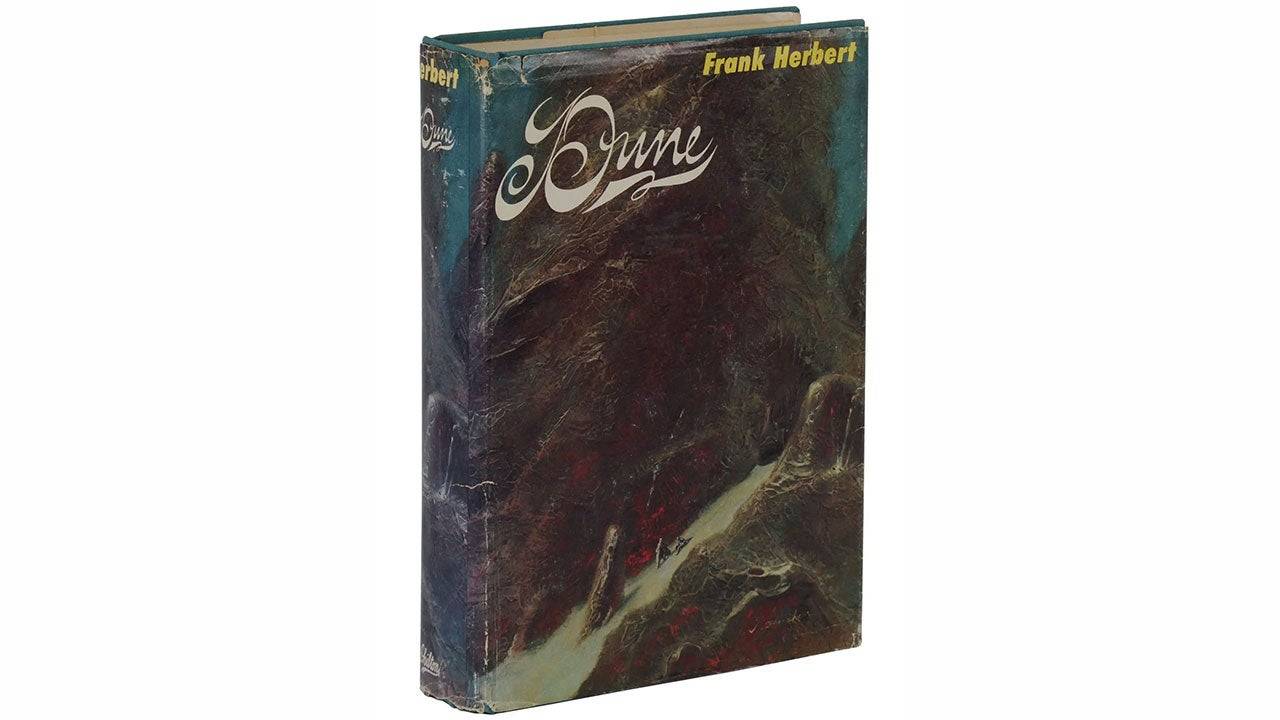
Scott told Total Film: "Early on, I worked closely with the writer, shaping the film’s aesthetic as they wrote."
This vision, culminating in a desert plunging into shadow, unfolds in the dreams of Paul Atreides, who awakens as rain lashes Castle Caladan’s windows. Unlike Timothée Chalamet’s portrayal, this Paul is a 7-year-old with long blonde hair, facing the Reverend Mother’s "box" test. His recitation of the Litany Against Fear, intercut with Jessica’s, reveals their psychic bond, with visuals of a burning hand and peeling flesh—illusory but vivid.
After passing the trial, young Paul uses The Voice to seize a sword from a guard, then nearly slays a sleeping Duncan Idaho to test a warrior’s vigilance, exuding a "feral innocence."
"Wurlitzer’s Paul is strikingly proactive," says Stephen Scarlata, producer of Jodorowsky's Dune. "He commands situations. A flash-forward from age 7 to 21 shows his intense training, surpassing Duncan. I prefer Lynch’s vulnerable Paul, whose uncertainty heightens tension, especially during his and Jessica’s escape."
At 21, Paul is a masterful swordsman, "striking, charismatic, noble." Duncan, now with white hair and beard, mirrors Jason Momoa’s wit.
DUNCAN
A teacher’s role is to be outdone
by his student someday.
(grinning)
But don’t ease up. This is just one
milestone. Deadlier challenges await.
For now, let’s get thoroughly drunk.
The scene shifts to a rock garden where Jessica crosses a bridge. Screenwriter Ian Fried, known for Legendary’s Spectral, highlights a pivotal twist: "Jessica gazes at a gardener raking white pebbles, then rain falls, and the gardener collapses, proclaiming, ‘The Emperor is dead.’ It’s chilling, but not in the book. Adding new elements to Dune’s dense narrative might not thrill fans."
The script moves to the "Emperor’s Inner Kingdom"—not Kaitain—set within "Snow Peaks encircling a Mandala, with three nested square walls and a shimmering Golden Light at the core." The Twenty-Four Great Houses mourn the Emperor, whose soul is conveyed by vibrant energies above his bier. A spectral Emperor speaks through a hollow-eyed Medium, bequeathing Arrakis to Duke Leto Atreides to stem universal darkness.
That darkness emerges as Baron Harkonnen, who, via Feyd-Rautha, proposes splitting Arrakis’ spice duties to avoid strife. Leto refuses. A near-identical line to Lynch’s 1984 film appears: "Who controls the spice controls the universe."
BARON
(to DR. YUEH)
Grasp this clearly before you go.
Who rules Dune rules the Spice,
and who rules the Spice rules
the Universe. Without me, your
Duke is powerless.
"I always credited Lynch with that line," says Mark Bennett of DuneInfo. "Was it borrowed from this De Laurentiis script, or independently conceived?"
Paralleling Lynch’s film, the Atreides’ departure from Caladan on a Guild Heighliner reveals a Navigator: "an elongated, humanoid figure with finned feet and vast, membranous hands, floating in a transparent shell, like a fish in an alien sea, with wholly blue eyes." The Navigator swallows a pill, enters a coma, and charts the course with melodic intonations to "Engineers," evoking Scott’s Prometheus.
Fried adds: "Showing the Navigator was brilliant. I’m disappointed Villeneuve skipped it—a missed chance."
The Atreides arrive on Arrakis, where their Arakeen fortress—dark chambers and grand fireplaces—recalls Scott’s Legend. The medieval tone, with swords and feudal loyalty, aligns with Scott’s concurrent work on a fantastical Tristan and Isolde. At a weather station, Liet Kynes introduces Chani, showcasing dissected creatures to highlight spice mining’s ecological toll. Chani joins their desert Ornithopter trip, where a worm attacks a factory ship, its smoky chimneys akin to Blade Runner’s cityscapes.
Shadout Mapes, oddly with three breasts, gifts Jessica a crysknife. Outside, Arakeen’s "squalid ghettos" reveal stark class divides, with dehydrated citizens clamoring for water, inspired by The Battle of Algiers.
A new action scene has Paul and Duncan chasing a Harkonnen agent into a trading post, sparking an ‘80s-style bar fight. Duncan wields an axe like Conan, while Paul kills with a precise throat strike.
DUNCAN grabs the axe.
DUNCAN
(examining it)
Crude weapon.
Poorly balanced, but it’ll do.
With a flick of his wrist, he hurls it
at a BURLY MAN advancing with an
iron bar. The axe cleaves him in two.
"This feels like a Burt Reynolds brawl," Scarlata says. "Paul’s early invincibility undermines the tension of his growth and survival."
Here, they meet Stilgar, a resolute Fremen leader, who beheads a lone Harkonnen at a smuggler’s market.
Dr. Yueh, signaled by a blinking insect, shares a poignant moment with Paul before sending him into Arakeen’s streets. Paul follows a homeless boy into a Fremen Spice Den, inhaling blue spice vapor that triggers visions of his unborn sister Alia chanting "Maud’Dib." At a strange pit, an Old Crone oversees a red ball and a tiny sandworm, which Paul hypnotizes with mudras before placing it in a conch shell.
After poisoning Thufir over chess, Yueh disables the castle’s shield, allowing five four-foot Harkonnen Death Commandos to infiltrate. Paul, returning from the slums, faces a bat-like, cobra-headed Hunter-Seeker. As Jessica enters, he beheads it with a single strike.
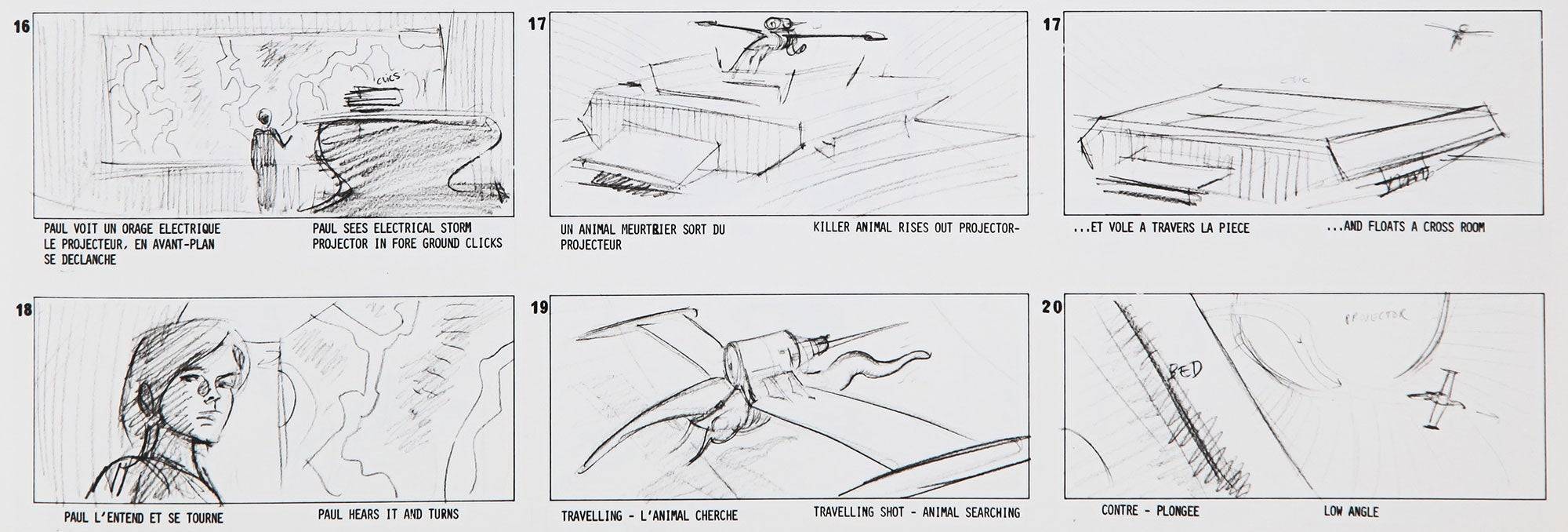
"The organic Hunter-Seeker is intriguing," Scarlata notes. "It recalls Jodorowsky’s version, where it’s a creature with a bomb. Paul slows his pulse, disarms it, and tosses the explosive out a window."
Leto fells several Commandos before Yueh darts him. Duncan saves his poisoned Duke but is stabbed by Yueh, whom he bisects. Yueh’s sole motive is survival, needing the Baron’s antidote. Jessica places a poison gas capsule in Leto’s mouth before their farewell. Duncan dies battling Sardaukar, enabling Paul and Jessica’s escape via Ornithopter. A Harkonnen carrier crushes 20 fallen Atreides, in stark, R-rated violence.
Paul and Jessica’s desert flight is harrowing, with G-forces contorting their faces. After a wing clips, they crash, sand eroding their craft. In Stillsuits with hoods and mouth filters, they seek Fremen. Like Villeneuve’s film, Paul faces a sandworm fearlessly.
Notably absent is the incestuous Paul-Jessica thread from earlier drafts, which outraged Herbert and De Laurentiis, who demanded its removal.
"He wanted an incest film!" Herbert told The Sacramento Bee in 1982. "Imagine the fan backlash!"
Wurlitzer admitted to Prevue: "I explored an Oedipal dynamic between Paul and Jessica, pushing boundaries to amplify Paul’s heroism. It was central to the story."
Though excised, a scene remains where Paul and Jessica slide down a dune, entwined, losing supplies. They shelter in a cave within a giant worm carcass. At dawn, Stilgar’s Fremen arrive on a Sandsled. Jamis challenges Paul to a duel, which Paul accepts. Jessica, not Chani, advises him on parrying, handing him the crysknife, declaring him the Lisan al-gaib to awestruck Fremen.
The duel, fought inside the worm carcass, is swift and brutal. Paul kills Jamis, weeps for him, and Fremen marvel at his tears, echoing Lynch’s cut scene. At a Spice ceremony, Paul inhales, earning the name Maud’Dib. Kynes, aware of the Lisan al-gaib’s contrived origins, supports it to hasten Arrakis’ transformation. Paul weds Jamis’ widow, Chani, who accepts him and Jessica after brief mourning, offering her husband’s water to the tribe.
Fremen board a Sundancer, a trimaran crossing salt flats, to unite tribes behind Paul. Chani, urged by Kynes to stay near Paul, hides her unease about Jessica. Paul demands unwavering loyalty from Chani.
PAUL
I seek total allegiance, even for
what you cannot grasp.
CHANI
Sharing your purpose, I hold
nothing back.
"A true leader isn’t purely virtuous," Wurlitzer said in 1984. "He’s driven, sometimes ruthless, serving greater aims. Even Christ expelled the temple merchants."
"Paul feels like a flawless Messiah here," Fried observes. "He’s hard to connect with, almost not the protagonist."
The climax features a Water of Life ritual led by a three-breasted, male-genitaled Shaman, whose dance with a seizing attendant summons a 10-foot sandworm. It dies in a water ditch, turning it blue. Jessica drinks, her aura merging with the Reverend Mother’s, surviving to become the new Reverend Mother. Paul, Jessica, and Chani stand as a royal trio before the Fremen, who see Paul as their Messiah. The script ends with Jessica, cloaked in black, summoning a sandworm with a thumper, hinting at Paul’s impending ride—Herbert’s cherished moment, per The Vancouver Sun in 1980.
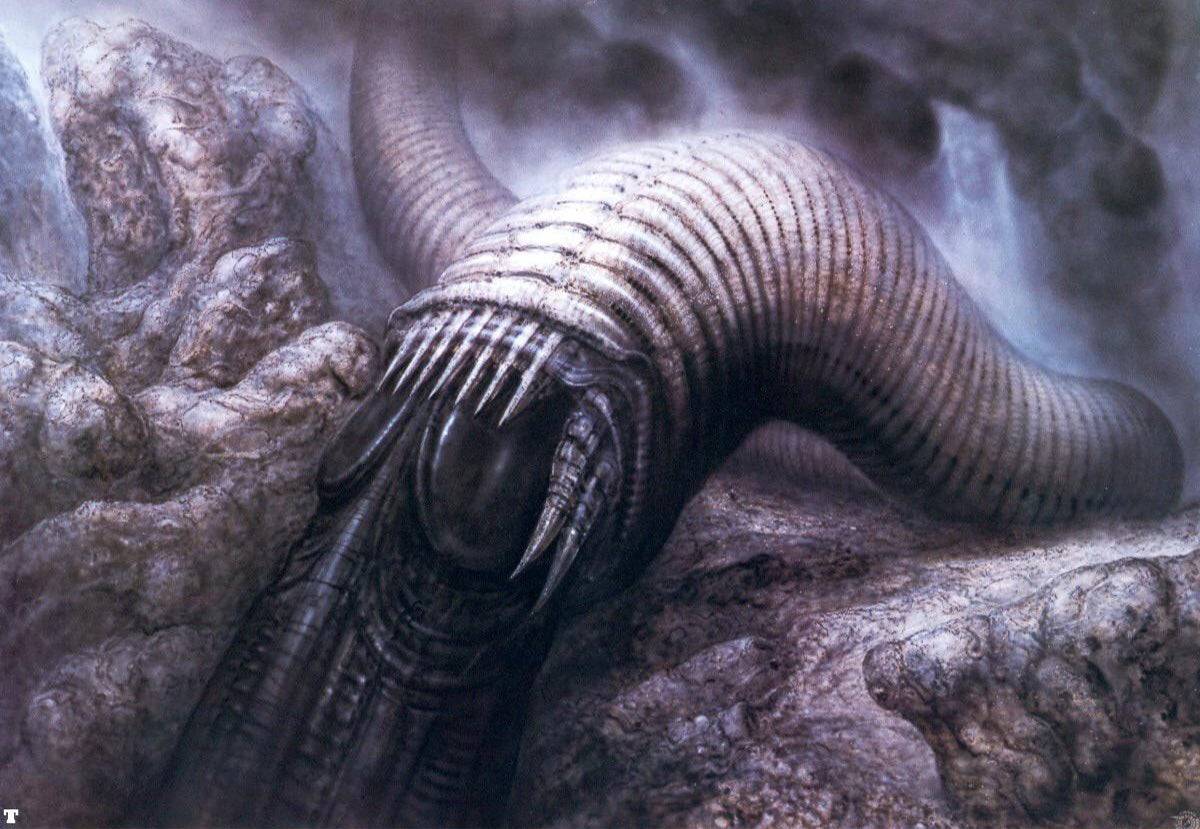
Herbert’s Dune warns against charismatic leaders, a theme Lynch sidestepped but Villeneuve embraced, with plans for Dune Messiah. Wurlitzer’s script casts Paul as a confident dictator, supported by Chani and Kynes for their own aims. Conceived post-Star Wars and Alien, it pushed for a gritty, R-rated sci-fi epic tackling ecology and exploitation, perhaps too ambitious for its time, much like Zack Snyder’s Watchmen.
Scott told the Tribune in 1979: "Sci-fi was long underground, yet Dune sold 10 million copies."
The script prioritizes visual relationships: Kynes and Chani interact early, Chani meets Paul sooner, and Leto faces the Baron directly. The Emperor’s death, not his scheme, drives the chaos, streamlining the narrative. Gurney and Rabban are absent, but Kynes is prominent.
Lynch’s early draft ended with Paul and Jessica fleeing a burning Arakeen, vowing revenge. Wurlitzer’s closes with the Water of Life ritual, pre-time jump. Villeneuve balanced these, ending his first film with the Paul/Jamis duel.
The script’s dark, mature tone likely alienated studios, making Lynch’s version seem mainstream by comparison.
"It wouldn’t have pleased Dune fans," says Mark Bennett. "Too many liberties and excessive ‘magic,’ unlike Herbert’s grounded novel. Without the second half, the resolution is unclear—perhaps a guerrilla war, Paul’s duel with Feyd, and his rise to Emperor."
The script’s legacy includes H.R. Giger’s phallic sandworm and skeletal Harkonnen furniture, now at the Giger Museum. Vittorio Storaro, slated to shoot, later lensed the 2000 Frank Herbert's Dune miniseries. Scott and De Laurentiis collaborated on Hannibal, earning $350 million. Echoes of this script appear in Gladiator II, with themes of betrayal, mother-son bonds, and a disguised heir winning over the oppressed.
Wurlitzer’s script, which Scott called "a strong take on Herbert," uniquely balances the novel’s ecological, political, and spiritual themes. Lynch emphasized spirituality; Villeneuve, leadership’s dangers.
"Ecology is woven seamlessly into this script," Fried says. "It’s a core narrative driver, reflecting the consequences of spice mining without being heavy-handed. Characters have clearer motivations."
As Dune nears its 60th anniversary, its themes of environmental collapse, authoritarianism, and awakening remain vital. Perhaps a future filmmaker will revisit Scott’s vision, emphasizing its ecological heart.
Mobile Legends: January 2025 Redeem Codes Released
Pokemon TCG Pocket: Paralyzed, Explained (& All Cards with ‘Paralyze’ Ability)
Android Action-Defense
Brutal Hack And Slash Platformer Blasphemous Is Coming To Mobile, Pre-Registration Now Live
Pokémon TCG Pocket Is Dropping a Trade Feature and Space-Time Smackdown Expansion Soon
Mythical Island Debuts in Pokemon TCG, Time Revealed
GWENT: Top 5 Decks for 2025 - Strategies Revealed
Marvel Rivals Showcases New Midtown Map

Lucky Lady's Charm Deluxe Slot
Download
Vô Cực Đại Chiến
Download
Lunch with Ronan mod
Download
Diamond Deluxe Casino - Free Slot Machines
Download
Shopping Mall 3D Mod
Download
Priya’s Awakening
Download
Flight Pilot: 3D Simulator
Download
Flight Pilot: 3D Simulator
Download
L.A. Story - Life Simulator
Download
Pikmin Bloom Earth Day Walk Party Begins
Dec 24,2025
Sony Unveils Official PlayStation Wireless Speakers
Dec 24,2025

Cyberpunk 2077 to Fill 64GB, a Quarter of Switch 2 Storage
Dec 24,2025
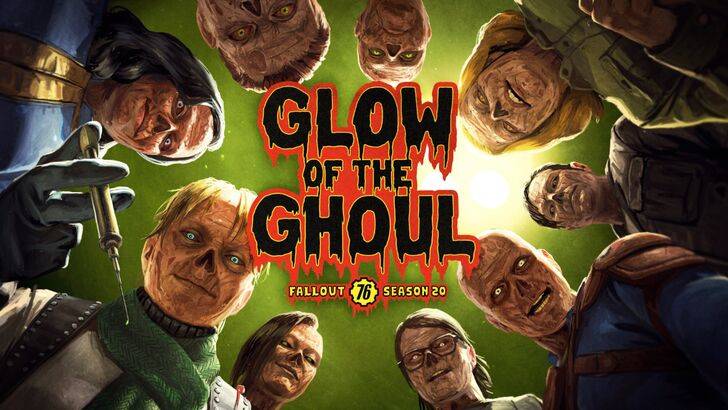
Fallout 76 Unveils New Ghoul-Themed Update
Dec 23,2025
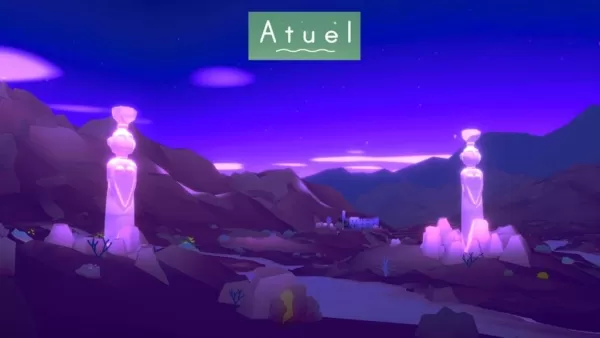
Climate Game Atuel Launches on Android (Note: "Surrealist Documentary" was removed to meet 50-character limit.)
Dec 23,2025